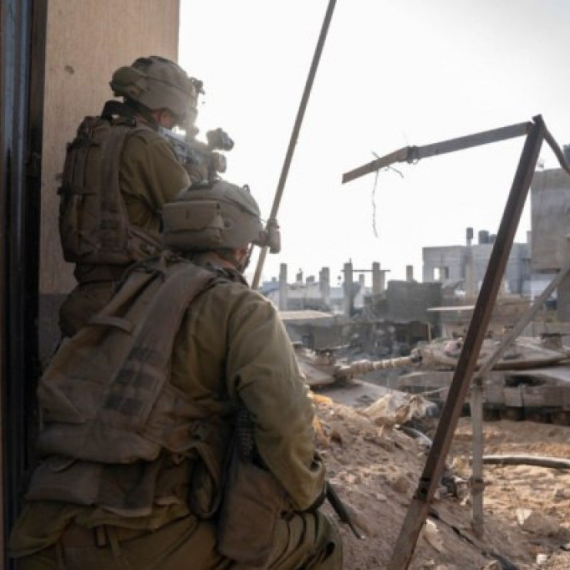Kunduz scandal touches Merkel's office
German Chancellor Angela Merkel's office reportedly knew that civilians were killed in a German-ordered airstrike in Afghanistan just hours after the bombing.
Friday, 26.03.2010.
10:34

German Chancellor Angela Merkel's office reportedly knew that civilians were killed in a German-ordered airstrike in Afghanistan just hours after the bombing. Newsweekly Der Spiegel reported Thursday that the German foreign intelligence service (BND) sent an e-mail describing the attack and the possible numbers killed. Kunduz scandal touches Merkel's office "Many civilians were killed (numbers vary between 50 and 100)," the e-mail read. A government spokesman described the e-mail as an "unconfirmed preliminary report." He said the e-mail has already been handed over, along with other related documents, to the parliamentary inquiry, and that all of these documents confirm Merkel's stance that civilian casualties were never ruled out. While Merkel never claimed that civilians were not killed, it was days before she first spoke to parliament about the airstrike. Much of the parliamentary inquiry is focused on who knew what about the bombing and when they knew it. Franz-Josef Jung, defense minister at the time of the airstrike, stepped down in November over an alleged cover-up of civilian deaths. He had originally said that no civilians had been killed. A NATO report ultimately found that 142 civilians were killed in the bombing of the two oil tankers, which had been hijacked by Taliban insurgents but then got stuck crossing a river bed. The strike was ordered by a German colonel and carried out by NATO aircraft. The BND e-mail explained the high number of civilian casualties by saying that Afghan citizens had taken the "opportunity" to siphon off fuel for their own use. Testifying to the parliamentary inquiry on Thursday, Jung once again denied that he had suppressed evidence. The opposition in parliament has reserved the right to call Merkel as a witness in the inquiry, although no date has been set.
Kunduz scandal touches Merkel's office
"Many civilians were killed (numbers vary between 50 and 100)," the e-mail read.A government spokesman described the e-mail as an "unconfirmed preliminary report." He said the e-mail has already been handed over, along with other related documents, to the parliamentary inquiry, and that all of these documents confirm Merkel's stance that civilian casualties were never ruled out.
While Merkel never claimed that civilians were not killed, it was days before she first spoke to parliament about the airstrike.
Much of the parliamentary inquiry is focused on who knew what about the bombing and when they knew it. Franz-Josef Jung, defense minister at the time of the airstrike, stepped down in November over an alleged cover-up of civilian deaths. He had originally said that no civilians had been killed.
A NATO report ultimately found that 142 civilians were killed in the bombing of the two oil tankers, which had been hijacked by Taliban insurgents but then got stuck crossing a river bed. The strike was ordered by a German colonel and carried out by NATO aircraft. The BND e-mail explained the high number of civilian casualties by saying that Afghan citizens had taken the "opportunity" to siphon off fuel for their own use.
Testifying to the parliamentary inquiry on Thursday, Jung once again denied that he had suppressed evidence.
The opposition in parliament has reserved the right to call Merkel as a witness in the inquiry, although no date has been set.


























































Komentari 1
Pogledaj komentare